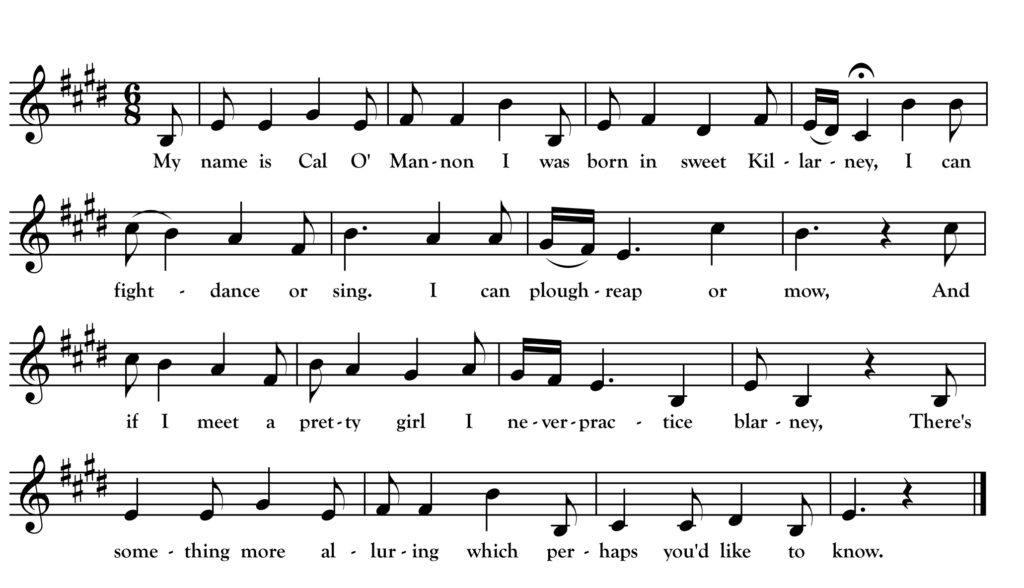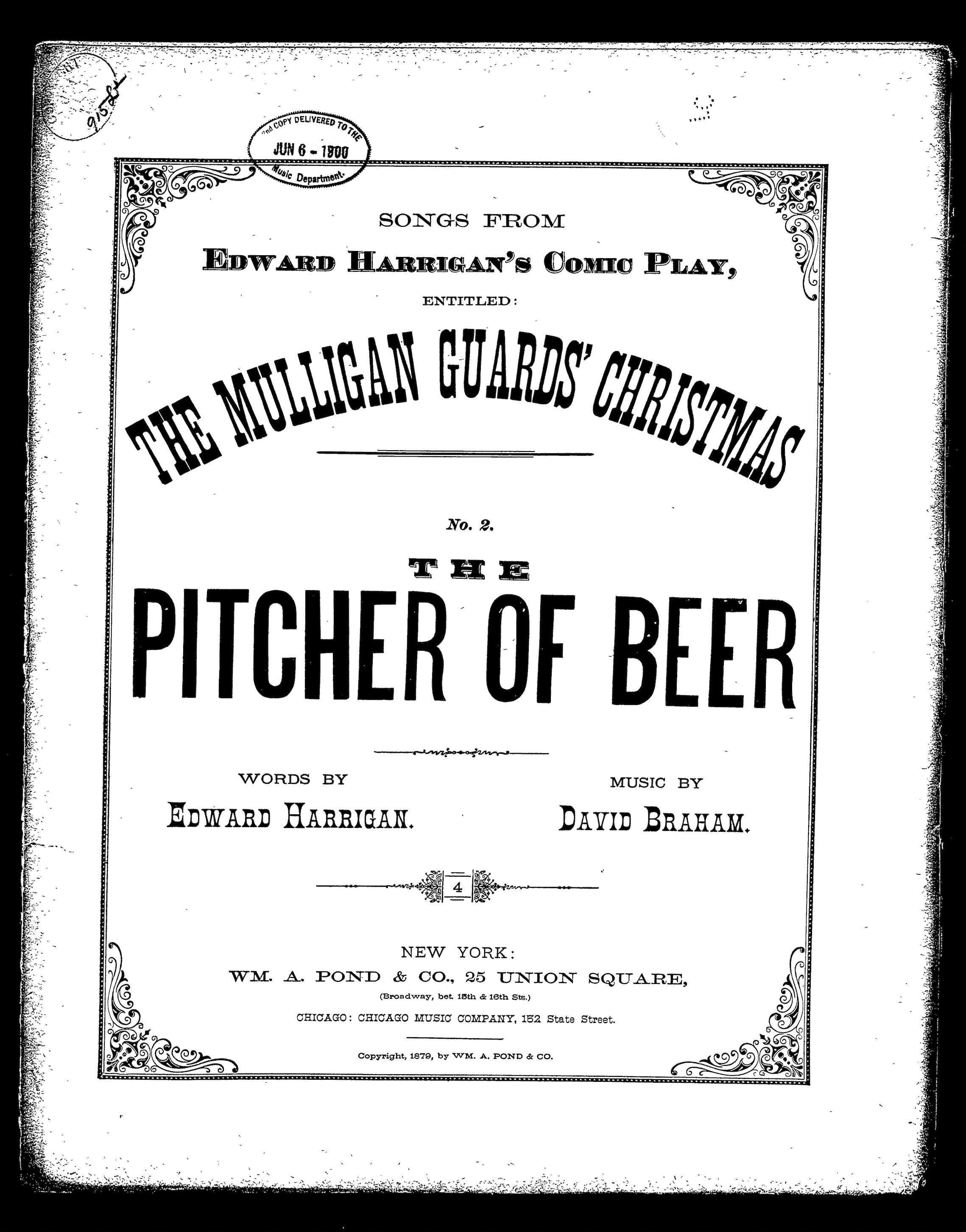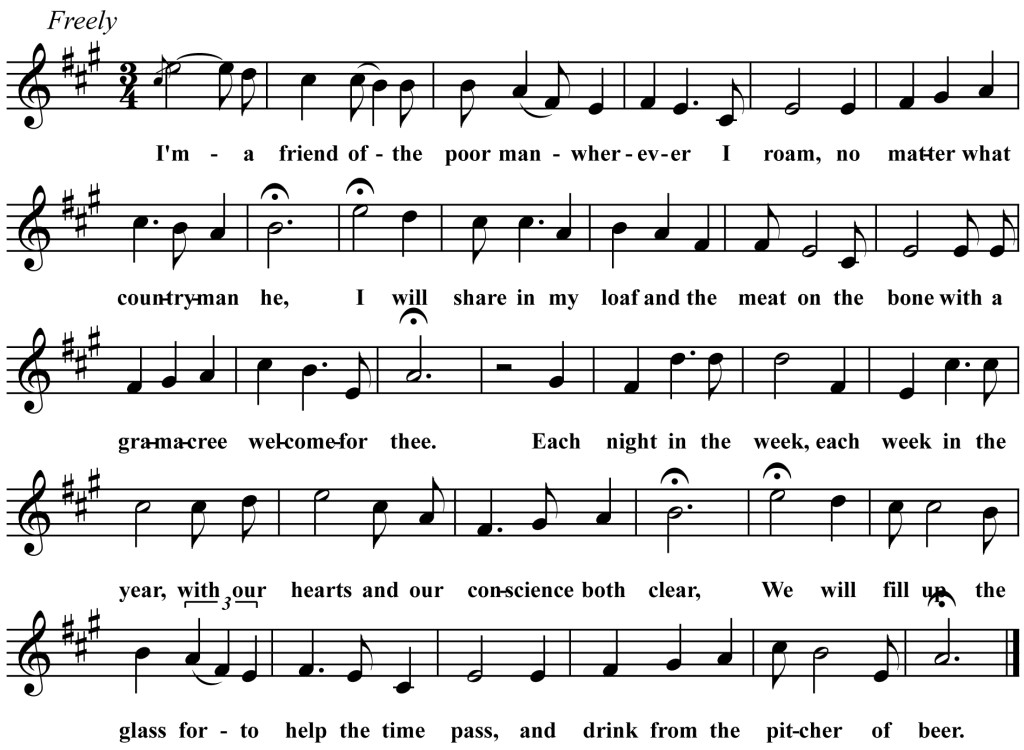The Apple Praties

My name is Cal O’Mannon l was born in sweet Killarney,
I can fight, dance or sing. I can plough, reap or mow,
And if I meet a pretty girl I never practice blarney,
There’s something more alluring which perhaps you’d like to know.
I am not of your mountebanks or any shabby family,
I sprung from ancient history, I’ll prove it to be so,
For I am of the Os and Macs, the darling sons of Paddy Whack,
That live and toil in Ireland where the apple praties grow,
I could tell a great deal more, if I could trace my pedigree
My mother was a Hogan and my father I don’t know,
I’ve got ninety-nine relations in a place they call Rosscarbery,
And each unto his name has a “Mac” or an “O.”
My uncle was O’Callaghan, my Aunt she was O’Brannagan,
And as to my own character sure I can plainly show,
I am a ranting roving blade that never was afraid,
For I was born in Ireland where the apple praties grow.
May the heavens still protect our hospitable counteree,
Where first I drew my living breath to hear its cocks to crow,
There fine scenes I did enjoy as a gay unthinking boy,
With the lads that lived in Ireland where the apple praties grow.
St. Patrick was our saint and a blessed man in truth was he,
Great gifts unto our counteree he freely did bestow,
He banished all the frogs and toads that sheltered in our counteree,
And unto other regions he ordered them to go.
Another fact undoubtedly that cannot contradicted be,
Just trace the Irish history and it will plainly show,
Search the universe all round, braver fellows can’t be found,
Than the boys that lived in Ireland where the apple praties grow.
This month we have a song of Irish pride from the repertoire of Cyril O’Brien of Trepassey on Newfoundland’s Avalon Peninsula. You can hear the first verse of O’Brien’s performance on the wonderful Songs of Atlantic Canada website hosted by Memorial University in Newfoundland. O’Brien’s version is the only evidence I have found of it being sung in tradition though it was printed several times as a broadside in Scotland, England and New York City. I used the broadside versions to fill in some blanks left by Leach’s transcription of O’Brien.
A note at the top of the New York printing (by Marsan) indicates that the song was composed and performed by Belfast-born actor James “The Irish Comedian” Seymour as part of his role in “The Duke’s Motto.” This was a play by Dublin-born playwright John Brougham which had a long successful run at Niblo’s Garden theater in New York City in the 1860s. Brougham’s plays were performed on both sides of the Atlantic so it is possible that Seymour authored the song and that it was then printed (and sung) internationally though such claims of composition are not always true. In any case, the song was popular enough to be parodied in Washington, DC as the “Song of the Civil Service Man” in 1887. Other newspapers from the period even use the phrase “where the apple praties grow” as a euphemism for Ireland.



